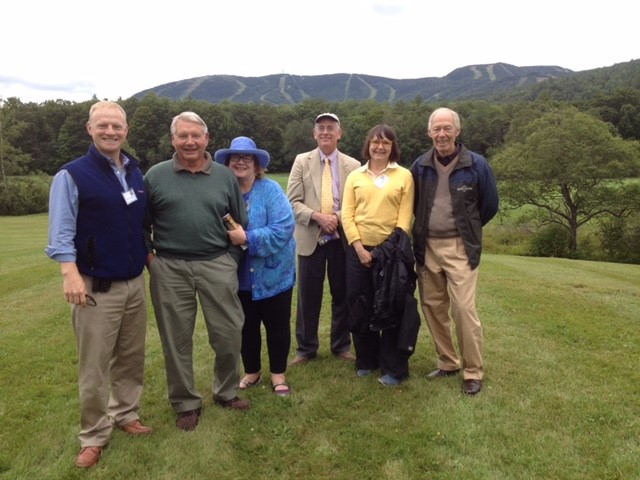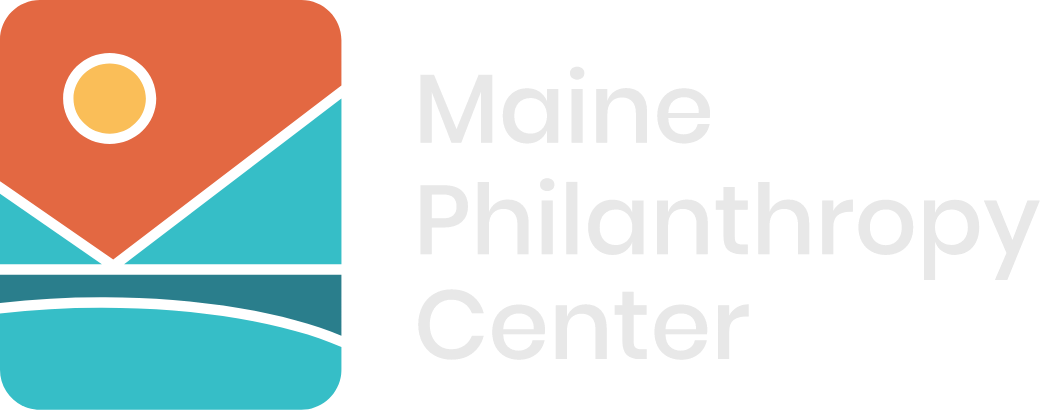We talked with Carolyn Wollen, a trustee of the Betterment Fund, about spy novels, philanthropy tradecraft, and working toward systemic change.
The Betterment Fund is a private foundation created under the will of William Bingham 2nd, of Bethel, more than 60 years ago. The primary geographic focus is western Maine and other rural Maine areas.
Carolyn agreed to talk with us a bit about the Betterment Fund’s current “tradecraft” (she notes that she’s been reading too many spy novels lately).
Welcome, Carolyn!
 First, what spy novel would you recommend?
First, what spy novel would you recommend?
The spy novel I would recommend is The Company by Robert Littell, which was recommended to me by Janet Henry [of the C.F. Adams Charitable Trust and former President of the Maine Philanthropy Center]. I rely on my philanthropic network even for book recommendations!
Thank you! So tell us about your grant process.
Almost all of the grant work is done by the six individual trustees. Once an application has been received, it is assigned to a particular trustee. That “responsible” trustee is in charge of doing the initial review, garnering questions from all trustees about the application, getting and sharing the answers.
If the grant is funded, in most cases the same trustee is permanently assigned to the grant and the relationship, which means includes overseeing the payments, reviewing reports and sharing those reports at our grant meeting. Because we often make flexible operating support grants on a multiyear basis, these relationships develop depth.

The six Betterment Fund trustees, from left: Marty Grohman, Bill Clough, Carolyn Wollen, Andrew Tansey, Carol Geist, and Bill Winship
When you say “multiyear”—how many years?
Many of the grants we make are paid over three years. Our average grant payment is less than $15,000 a year. In addition, sometimes we renew those three year grants. There are a few organizations that may get grants for ten years in a series of multi-year grants.
Why do you fund multi-year grants?
We feel that if we give an organization a one-year operating grant, all we’re doing is paying them to apply to us next year. There’s very little net gain in that transaction. For the money and time they’ve spent applying, a three year grant gives them more stability. Hopefully it allows them to put more money to the bottom line of their programs.
When we give operating support, as we often do, it means that we think the organization is doing some very good essential work. The specifics might change, but the essence remains and usually so do the needs. So it is easier to see why multi-years of support are appropriate. We are not looking at the end of a specific project.
There are so many organizations that are doing fantastic work. You look at them the next year and think, why would you not want to keep doing this?
There are so many organizations that are doing fantastic work. You look at them the next year and think, why would you not want them to keep doing this? However, you have to balance that with having money available for new grants.
Are there any other types of multi-year grants you fund?
Some of our grants come out of trustee initiatives, like the Mahoosuc Initiative and Maine West, which can continue, with adaptations, long term.
One example: Recent research about a 40-year community-wide health program in Franklin County, partly funded by Bingham philanthropy, showed that residents had a consistently lower adjusted mortality rate than otherwise expected.
We think really fundamental change can take that long.
And you’re looking to make that kind of change with your initiated grants.
Right. And those grants are primarily in the geographic preference of the western mountains.
Funders talk about “systemic change.” We look at change from a primarily community standpoint. Change ebbs and flows with changes of leadership and circumstances—we just hope to keep moving steadily ahead with some concrete gains and mostly overall forward progress.
You mentioned that a trustee is assigned “the relationship.” What does that mean?
There’s no prescribed format for a relationship. Sometimes it really is very transactional. Other times, particularly when it goes on for a longer time, the trustees get to be really knowledgeable about what the organization is doing through other kinds of communications, whether newsletters, or annual reports, or going to conferences, or having separate meetings.
What that relationship does for us is increase our knowledge about what’s going on, and gives us an opportunity to make better decisions about the grants that we do make.
We work hard to articulate our priorities, which change from time to time. One of the ways we determine what our priorities are is from the knowledge we get from our grantees. That feedback loop is important to us. We have a rather extensive listing of our priorities on our website: www.bettermentfund.org.
What do you do if the grant isn’t made?
If a grant is not made and the unsuccessful applicant wants some feedback, the responsible trustee will do that as well. In that case we try to be specific about the reasons—not just “too many other good applications”--so that the applicant will be able to judge whether a similar application next year is likely to be successful or not.
How do you decide which trustee is responsible for the grant or relationship?
Each of our general grant categories, including 5 “cross-sector” areas, is assigned to a trustee. This gives a trustee a chance to become familiar with the area generally, attend relevant funder group meetings like Early Childhood Funders or Environmental Funders Network, and to develop ideas for our “initiated grants” which may be outside our usual regular grant process.
Over time, these grant category responsibilities move among the trustees to keep all of us well informed on a range of issues.
Since we pay approximately 100 grantees a year (each based on an application or an interim report), plus final reports from past grantees, this keeps all of us busy!
How else do you make sure you’re aware of trends and issues in the field?
We make a lot of other contacts in the world of philanthropy in Maine. Three of us have served on the MPC Board (Carol Geist, Marty Grohman and myself). We try to attend the plethora of the meetings called by nonprofits and other grantmakers.
And once a year, we have a trustee meeting in Maine that is designed to familiarize ourselves with a different region of Maine, or a specific issue. We have traveled to places like Eastport, Rangeley, Rumford, Bethel and Biddeford. Last year we met in Augusta. Marty led us on a tour of the state capital and we also visited the Maine State Museum. We arranged meetings about the Downtown Center of MDF, a panel on the funding of entrepreneurship in Maine, and a check-in with our close colleagues, the Bingham Program.
What’s changed lately, and what’s ahead for the Betterment Fund?
Over the last three years we have been working hard on our “tradecraft”, starting with going to an on-line application system, with the help of our part-time grants administrator. We are actively looking for new ways to work more collaboratively with our funding colleagues, through initiated grants or other out-of-cycle grantmaking.
We also offer a basic review of draft applications before final submission if the nonprofit files the application at least 7 days before the due date, but very few take us up on that offer. It is in our own best interests to get the strongest applications possible.
For 2017, we are making a major change in our grant application deadlines—the new ones are March 15th, July 15th and November 15th. We are also changing the format of our application so that nonprofits can more easily incorporate some of the material they have developed for other funding applications. This new calendar spreads out our grantmaking in more even cycles and avoids the year end rush to get out the grant payments. However, it does mean that for 2017 we will have only two grant meetings (May and September).
Thank you so much, Carolyn!
